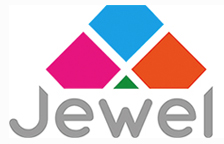Unconscious Bias in the Workplace
Being biased is an inevitable part of the human experience.
It’s the mental shortcut our brains use to process information quickly, based on patterns and past experiences. While this can be useful for efficiency, it often means we’re not seeing the world as it truly is but rather through a filter shaped by our upbringing, environment, and personal history.
These biases can significantly influence the work environment, often in subtle but impactful ways.
You may have seen, experienced or heard about favouritism, exclusion and lack of diversity in the workplace. But what about the more subtle unconscious biases that are linked to our expectations of how one should perform?
Consider this scenario – a colleague rarely contributes in meetings and stumbles when asked questions on the spot. Perhaps you may think they are ill prepared, or ‘winging it’ or just not bothered? As a result you think they’re not a good team member and add little value to the team.
This line of thinking implies that you expect them to regularly contribute in meetings and you expect them to be able to answer questions when put on the spot. Therefore you judge them based on this expectation.
These are the subtleties of unconscious bias in the workplace.
How many times have your own assumptions and expectations impacted your judgements and therefore your response to situations at work?
We often assume all operate in a similar way, disregarding different abilities and needs.
We operate by an ‘Unspoken Norm’.
Addressing these ‘Unspoken Norms’ requires recognising that not all employees are the same.

Recognising Everyday Unconscious Bias at Work
Unconscious bias often goes unnoticed in the workplace because it’s rooted in everyday assumptions about how people “should” work and behave – the Unspoken Norms.
Like judging an employee’s ability based on how they physically present or communicate, rather than on their actual skills and contributions.
Some examples of Unspoken Norms include:
- Assuming everyone can sit through long meetings, maintaining focus for the duration.
- Expecting instant feedback or immediate responses – not providing time for those reflectors amongst the team.
- Using one mode of communication – such as fast-paced conversations or densely written reports, and overlooking the needs of visual aids and processing time.
- Valuing those that speak up in meetings, and questioning those who seemingly contribute little in the group dynamic.
- Assuming all can communicate effectively when put on the spot – for example interview panels.
- Failing to recognise contributions from employees who are less charismatic.
- Thinking someone is under confident or even rude if they do not give you eye contact – when in fact they might be shy.
- Using generalisation in language i.e. “we all know that” – this assumes a level of knowledge that some individuals might not have.
Think about this past week at work; what assumptions and expectations have you been operating under? Are they fair or do you need to readjust your views?
Rethinking How We Engage
To improve the working environment, we can rethink how we engage with our teams, shifting from a one-size-fits-all approach to one that recognizes and adapts to diverse needs. This begins with building stronger working relationships and expanding our communication methods.
Instead of relying solely on traditional meetings or email, consider providing information through various formats or meeting in different ways – for example a walking meeting or a voice message instead of an email.
Engagement also means adjusting expectations around participation.
- Offer multiple ways for employees to contribute — whether that’s through live discussions, asynchronous feedback, or written input — this ensures that everyone has a chance to share their insights comfortably.
- Consider implementing practices like sending agendas and materials in advance so employees who need extra time to process information can prepare accordingly.
By rethinking how we engage, we actively make sure everyone has the opportunity to contribute fully and meaningfully.

Two Steps Managers can take to Challenge Unconscious Bias
Managers play a crucial role in shaping a workplace culture that challenges unconscious bias.
Step One: Self Awareness
Firstly, managers need to reflect on their own biases and how these might influence their decisions, from hiring practices to everyday interactions.
Some questions to help you check-in:
- Are you assuming that a high-energy, extroverted employee is more productive than someone who works quietly and independently?
- Do you equate physical presence in the office with commitment, overlooking the value of remote work flexibility (agile working) for those who may be overstimulated by a busy office?
- Do you value the rapid response over the considered response?
- Are you assuming that all information delivered by you is understood by all?
- Are your decisions at work influenced by those who you share similar views with?
Step Two: Building Relationships
With clarity around personal biases, managers are able to build stronger relationships, which will support them in being better managers and create trust that is an essential principle in management of people.
To actively challenge these biases, managers can make a habit of asking employees about their needs, rather than assuming what works for them. They can also have more detailed discussions around learning and communication preferences.
When managers actively take steps to challenge and correct their own assumptions, they create a more open, supportive environment for all employees.

Bias is a part of being human, but it doesn’t have to dictate our behavior.
By taking steps to understand and manage our unconscious bias, we can create a more inclusive environment where everyone’s perspectives are valued. Furthermore, the more we learn about our biases, the more we can lead with clarity, empathy and integrity.
Contact us, if you need support breaking down barriers to identify biases in your workplace or would like to explore how we address these in our dignity at work, performance management and recruitment & selection workshops.

